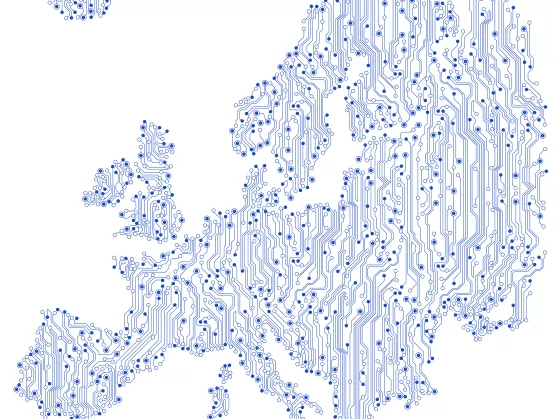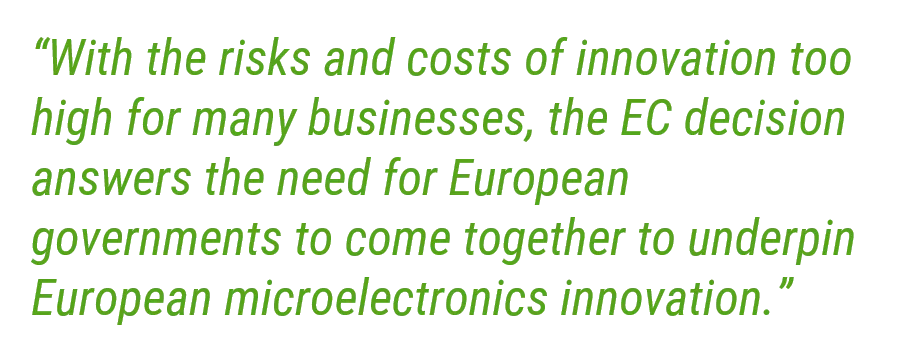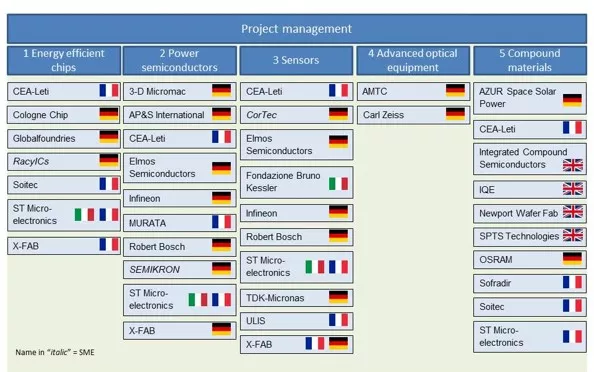
Last month the European Commission (EC) approved €1.75 billion in public support from France, Germany, Italy and the United Kingdom (UK) to fund the joint European microelectronics project, which focuses on developing Internet of Things (IoT) and connected car technologies. In line with European State aid rules, the integrated microelectronics project brings together businesses across Europe to spur innovation.
The EC project assessment followed EU State aid rules as well as the Important Projects of Common European Interest framework (IPCEI). Communicated in 2014, IPCEI enables Member States to jointly address critical technologies, such as microelectronics, and support risky projects that help the EU achieve its strategic policy objectives but otherwise would have not materialized.
With the risks and costs of innovation too high for many businesses, the EC decision answers the need for European governments to come together to underpin European microelectronics innovation. The approval is also seen as another government endorsement of the European microelectronics industry. The microelectronics project is the first integrated IPCEI in research and development (R&D) and innovation approved by the EC since the introduction of IPCEI in 2014.
 The microelectronics project involves 29 participating companies and research organizations from four EU Member States. In addition to the €1.75 billion in public support, the project is courting €6 billion in private investment.
The microelectronics project involves 29 participating companies and research organizations from four EU Member States. In addition to the €1.75 billion in public support, the project is courting €6 billion in private investment.
The project seeks to enable technologies for key applications such as autonomous and electric mobility as well as smart manufacturing and home devices. These technologies will require participants to collaborate in areas that need complementary expertise, paving the way for developing energy-efficient chips, next generation power semiconductors, smart sensors with higher performance and accuracy, advanced optical equipment and compound materials beyond silicon.
The project, scheduled for completion in 2024, will involve large enterprises, small and medium-sized enterprises (SMEs), EU-headquartered and global businesses, and R&D actors across the value chain as follows.
 Image Source: European Commission
Image Source: European Commission
Microelectronics is capital-intensive, with a state-of-the-art fab easily costing billions of euros. SEMI welcomes the EC’s timely approval of the new microelectronics project as governments around the world continue to invest heavily in the development of home-grown semiconductors. Over the past few years, SEMI has emphasized the need for European government support and funding for new R&D and innovation projects involving industry leaders, academia and other microelectronics players across the value chain to drive the development of IoT solutions in Europe (see SEMI ISS Europe key takeaways).
Emir Demircan is senior manager, Advocacy and Public Policy Europe, at SEMI Europe.